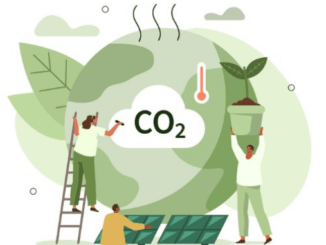
Your business might be eco-conscious in the real world – but is your website quietly undermining those efforts online?
CREDIT: This article has been created using information available at The Green Web Foundation
You may not realise it, but every time someone visits your website, it uses energy – often powered by fossil fuels. From streaming product videos to loading large images and sending contact form submissions, every online action consumes electricity. And in a world where the internet is now the largest coal-powered machine on Earth, small business owners have a responsibility – and an opportunity – to make a difference.
Why Your Website’s Energy Use Matters
As more businesses aim to reduce their carbon footprint and meet net zero targets, digital sustainability is becoming just as important as physical operations. The emissions from a single website might seem small but multiplied across thousands of users and years of operation, the impact grows quickly.
According to the Sustainable Web Design model (based on peer-reviewed research), around 15% of a website’s total energy use comes from hosting alone. That means where – and how – you host your website plays a significant role in your overall digital carbon footprint.
Choose a Green Hosting Provider
One of the most impactful steps you can take is switching to a green web host. These providers use renewable energy to power their data centres and often have strong environmental policies in place. Beyond the environmental benefits, choosing a green host shows customers, partners and employees that your business cares about sustainability. It can also give your brand a competitive edge as eco-conscious purchasing decisions become more common.
Optimise Your Website for Efficiency
Reducing the “weight” of your web pages not only lowers energy usage but also improves site speed and user experience. Here are a few easy ways to do it:
- Compress images to reduce file size without sacrificing quality
- Switch to vector graphics (SVG) where possible instead of JPG or PNG
- Limit the use of large images or video unless necessary
Review and Streamline Your Content
Do a regular audit of your website content. Are you keeping outdated blogs, product pages, or unused files online? All that content takes up space and uses server resources.
Focus on keeping your website lean and valuable. By removing content that no longer serves your audience, you reduce the amount of energy needed to store and deliver it – and make your site easier to navigate at the same time.
A cleaner, faster website can improve user experience, boost search rankings, and signal your values to customers. If you’re a small business owner, it’s time to ask: Is my website helping the environment – or harming it? Making a few strategic changes today could have a lasting impact for tomorrow.



Be the first to comment